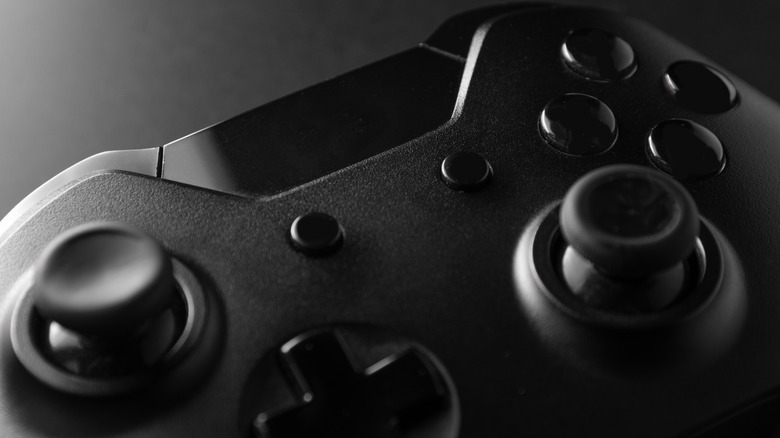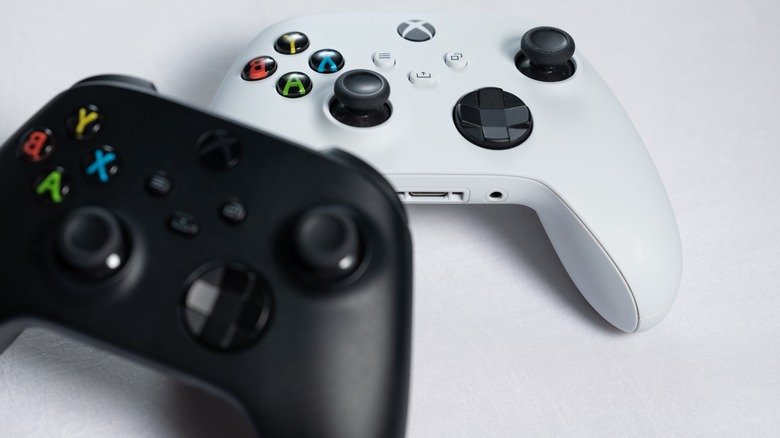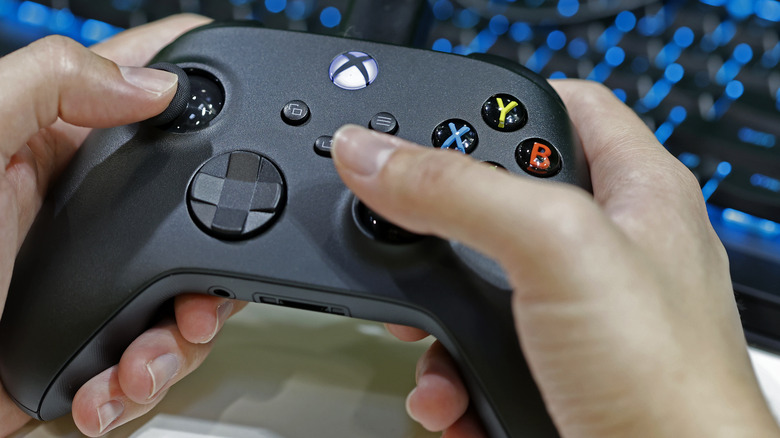Why Titan's Cheap Controller Is Actually A Fairly Common Practice
Since the tragic implosion of the Titan submersible that resulted in five deaths, a lot of attention has been placed on the sub and its construction, including the cheap Logitech F710 wireless game controller used to pilot the vehicle. Considering just how dangerous a trip to the bottom of the ocean is, a lot of people have been left wondering why a device used by ten-year-olds to play "Fortnite" would also be used to control the Titan, and whether such a choice was indicative of other poor decisions by private exploratory company OceanGate.
Most experts agree that using a game controller wasn't a bad decision; in fact, similar controllers are used in many real-world applications, including in life-or-death scenarios. Several government militaries use either devices very similar to the Xbox controller, or use the actual gaming peripherals themselves. The Israeli military uses one to control a tank, and the British do the same for an all-terrain vehicle. Game controllers are also used by the U.S. Armed Forces in a variety of applications, including to direct Navy submarine periscopes. They're used by the Army to control bomb disposal robots and heavy-duty laser cannons. Similar controllers have also been used by the U.S. to pilot unmanned drones in actual combat.
It's just not militaries using the tech, either. Controllers are becoming more prevalent in the medical industry, where doctors and medical students can use the devices to navigate through the human body for virtual surgery. There are good reasons for this choice by all of the above.
Game controllers are inexpensive, and the design is already taken care of
There are a few main reasons why game controllers are so prevalent in such important, life-or-death applications. For one thing, a wireless Xbox controller you can pick up from GameStop is a lot cheaper than a device designed from scratch by a government contractor like Lockheed Martin. The U.S. military can save a lot of money by using pre-built controllers and the cheap components inside, and it also means they're inexpensive to replace and keep spares on hand. This also allows the engineers building new vehicles and weapons to focus on other aspects of their design, rather than the interface used to control these machines.
The modern Xbox and PS5 controllers didn't arrive out of thin air. The button and joystick layouts, their primary uses, and the overall ergonomic design of these controllers have all evolved over several generations of consoles. The reason an Xbox Series X controller is so similar to an Xbox One, Xbox 360, and even original Xbox controller is because the layout for hand-eye coordination simply works, and less and less refinements have been needed.
As Retired U.S. Submarine Captain David Marquet explained on "The Dan LeBatard Show," "There's billions of dollars being spent in the gaming industry, and so they're making advances in a lot of these areas, like the human-machine interface, faster than that's going on in the military." Everyone from militaries to medical industries to OceanGate can benefit from the time and money spent by companies like Microsoft and Sony into perfecting a controller.
Many people are already very familiar with game controllers
Another reason the aforementioned industries like to use pre-existing game controllers is because they know that the people using them will likely already have some experience with them. In some cases, people who grew up gaming will have thousands of hours of experience. Soldiers and technicians won't need to master new hardware, because by using familiar gaming controllers, many hours of training will already have been taken care of, especially for some users starting at a very young age.
As Tom Phelps, iRobot director of North American products, explained to Business Insider, "By 2006, games like 'Halo' were dominant in the military. So we worked with the military to socialize and standardize the concept."
If users already feel comfortable with the interface after years of casual use, it can allow them to focus on other aspects of training. There could be a downside to this, however, as it can conflate very serious situations, like warfare, with gaming. Both the U.N. and A.C.L.U. have criticized the U.S. drone program's use of game controllers because of the possible mentality young soldiers may have while using them. War isn't a game, but these organizations fear that by using the same hardware that games do, it can start to feel like it. Even so, it's a common practice to use game controllers in serious contexts, despite how strange it may seem at first glance.


